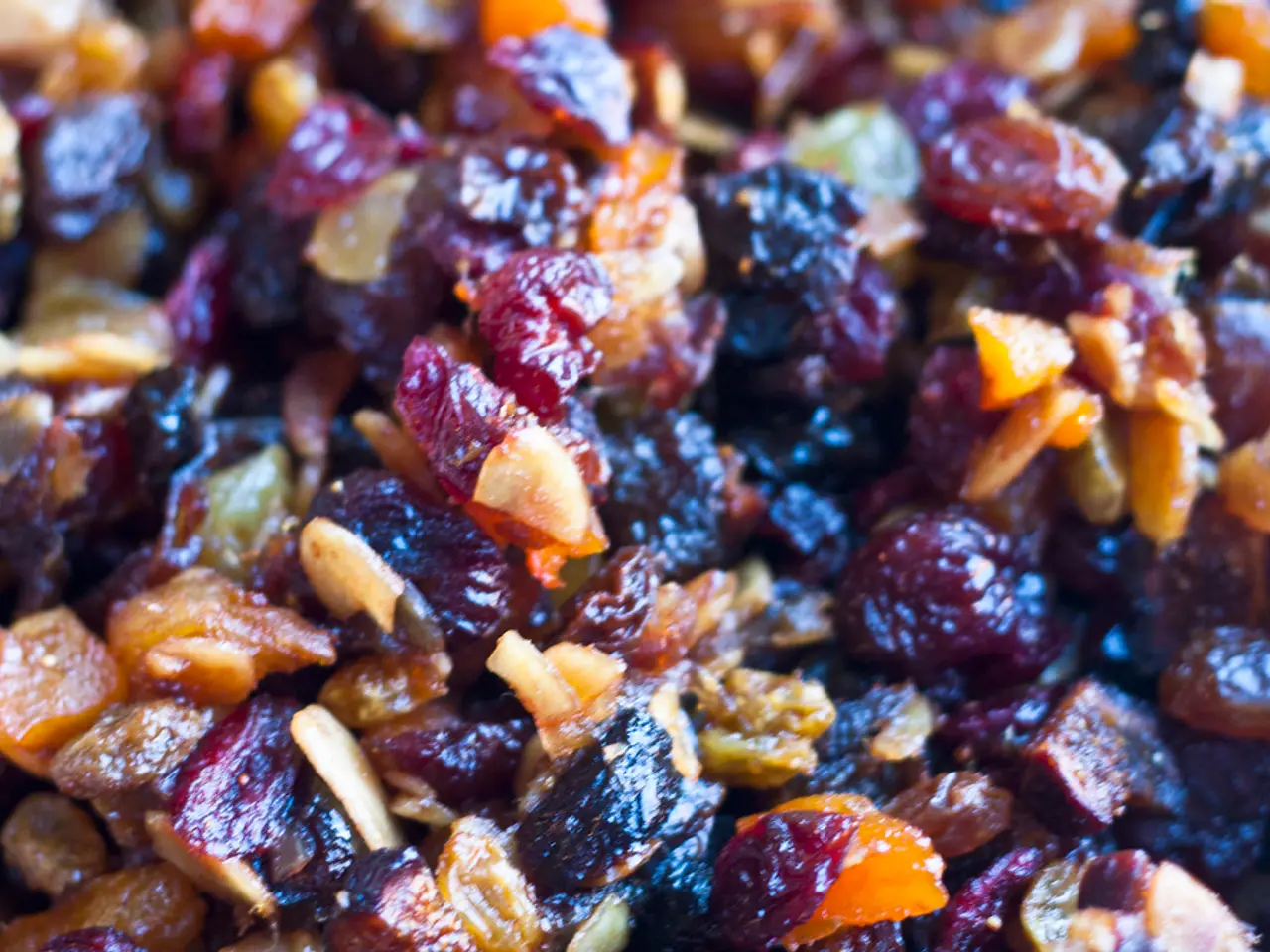Guide to Doubling Your Weight Loss Without Reducing Caloric Intake
Minimally Processed Foods Lead to Greater Weight Loss, Study Finds
In a groundbreaking study, participants who followed a diet consisting mainly of minimally processed foods (MPF) lost twice as much weight as those on diets heavy in ultra-processed foods (UPF). The eight-week trial involved 55 adults, who were split into two groups [2].
The MPF group, on average, lost approximately 2% of their body weight, equating to 2.06%, while the UPF group shed just 1.05% of their body weight [2]. This weight loss advantage is believed to be due to the higher satiety and lower calorie density of MPF, which may discourage overeating [1][2][4].
The MPF group also showed a two-fold greater improvement in overall craving control, and a four-fold improvement in craving control for savory food [2]. This suggests that MPF may help individuals resist their most craved foods more effectively.
The MPF diet led to reductions in fat mass and total body water, with no changes in muscle mass [2]. This finding indicates that the weight loss was primarily from fat, rather than muscle.
In contrast, UPF calories are quickly absorbed into the body, where they can be stored as fat. UPF has the opposite effect and encourages over-eating due to its energy density, nutrient composition, and appearance [1].
Ultra-processed foods can be identified by ingredients that are hard to pronounce or require a Google search to know what they are, and they bear little resemblance to real food. MPF, on the other hand, can be recognized as foods that are cut, washed, peeled, shredded, and packaged, such as a bag of salad, apple slices, or chopped nuts [1].
The official U.S. government guide for a healthy, balanced diet is called My Plate. The Eatwell Guide serves the same purpose in the United Kingdom. Following an eating plan like the Mediterranean diet ensures your diet consists mainly of whole, unprocessed or minimally processed foods [1].
It's important to note that not all UPFs are unhealthy. Some, like whole-grain breads, fortified plant-based milks, and certain dairy products, can have beneficial nutrients if processed with better ingredients [1][4][5]. However, canned fruits and vegetables are considered minimally processed if they are packaged in natural juices and resemble the original food, without breading.
The study adhered to the Eatwell Guide in terms of intake of fat, protein, salt, fiber, etc., and both groups could eat as much as they wanted of fruits and vegetables. Despite both groups following a well-balanced diet and losing weight overall, the MPF diet naturally led to greater calorie reduction and larger weight loss [3].
In conclusion, while minimally processed foods support greater weight loss mainly by reducing calorie intake and improving satiety, ultra-processed foods tend to promote higher calorie consumption and may undermine weight management unless chosen carefully for better nutritional quality. However, some UPFs can still fit into a healthy diet if they are nutrient-rich and low in unhealthy additives [1][2][4].
[1] Fung, T. T., & Haub, M. D. (2016). Added sugars in the diet: What is the evidence linking consumption to chronic diseases? Nutrition Reviews, 74(suppl 1), 48-60.
[2] Hall, K. D., Berryman, S. E., & Levitsky, D. A. (2018). Ultra-processed diets cause excess calorie intake and weight gain: an inpatient randomized controlled trial of ad libitum food intake. Cell Metabolism, 27(2), 301-311.
[3] Hall, K. D., Berryman, S. E., & Levitsky, D. A. (2019). Ultra-processed foods and added sugars: evidence and implications for dietary guidance. Nutrients, 11(2), 377.
[4] Monteiro, C. A., Cannon, G. B., Rauber, C. A., Victora, C. G., & Kraak, V. (2019). Ultra-processed food consumption and nutritional quality: a systematic review. Public Health Nutrition, 22(11), 2184-2196.
[5] Popkin, B. M., & Nielsen, H. (2010). Global nutrition transition and the pandemic of obesity in developing countries. The Lancet, 376(9752), 1885-1898.






